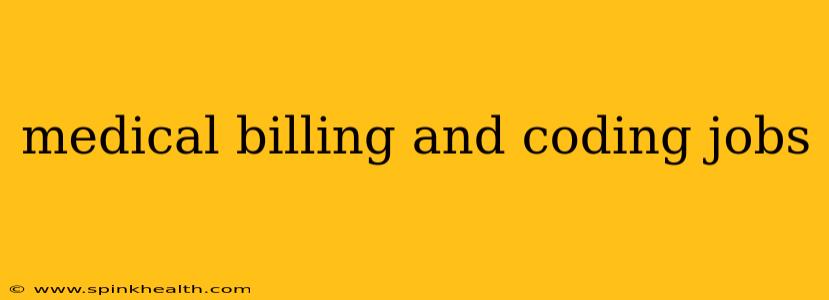The world of healthcare is vast and complex, and behind the scenes, ensuring smooth operations and accurate financial records is the crucial role of medical billers and coders. This isn't just about numbers; it's about ensuring healthcare providers get paid for their services and patients receive accurate and timely care. If you're intrigued by a career blending medical knowledge and meticulous detail, then medical billing and coding might just be your perfect match. Let's explore this fascinating field.
What Does a Medical Biller Do?
Imagine being the bridge between a healthcare provider and insurance companies. That's the essence of a medical biller's job. They take the detailed information from patient charts and translate it into claims that insurance companies can understand. Think of them as healthcare's financial translators. Their work involves:
- Creating and submitting insurance claims: This is the core function – accurately compiling patient information, procedure codes, and diagnostic codes to create a claim for reimbursement.
- Following up on claims: Insurance companies can be slow; billers diligently track claims, ensuring prompt payment and resolving denials or discrepancies.
- Managing patient accounts: They handle patient billing, payment processing, and account reconciliation, ensuring patients understand their financial responsibilities.
- Maintaining accurate records: Organization and precision are paramount; they meticulously maintain records of claims, payments, and patient accounts.
It's a detail-oriented job requiring strong organizational skills, meticulous attention to accuracy, and a knack for navigating complex insurance systems.
What Does a Medical Coder Do?
Medical coders are the detectives of healthcare data. They take the physician's notes, lab results, and other medical documents and translate them into standardized numerical codes. These codes, based on established systems like the ICD-10 (International Classification of Diseases, 10th Revision) and CPT (Current Procedural Terminology), are vital for accurate billing and reimbursement. Their work involves:
- Reviewing medical records: They carefully examine patient charts, identifying procedures, diagnoses, and other relevant information.
- Assigning codes: They apply the correct codes according to established coding guidelines, ensuring accuracy and compliance with regulations.
- Maintaining coding accuracy: Staying updated on coding guidelines and regulations is crucial to prevent errors and denials.
- Working with billers: Coders often collaborate with billers to ensure smooth claim processing.
Accuracy is paramount, and a deep understanding of medical terminology and coding systems is essential. It's a career that values precision and a commitment to staying current with evolving medical and coding standards.
What are the Job Outlook and Salary Expectations for Medical Billing and Coding?
The demand for medical billing and coding specialists is consistently strong. The healthcare industry is constantly growing, and accurate billing and coding are crucial for its financial health. The Bureau of Labor Statistics projects continued growth in these roles, with opportunities available in various healthcare settings—hospitals, clinics, physician offices, and insurance companies. Salary expectations vary depending on experience, location, and employer, but competitive salaries are offered, reflecting the critical role these professionals play in the healthcare system.
What Education and Certifications are Needed for Medical Billing and Coding Jobs?
While a four-year degree isn't always required, many employers prefer candidates with formal training. Associate degrees or specialized certifications in medical billing and coding provide a strong foundation and enhance career prospects. Several reputable organizations offer accredited programs, equipping individuals with the necessary knowledge and skills. Continuing education is also important to stay abreast of evolving guidelines and regulations within the dynamic healthcare landscape.
How Can I Find Medical Billing and Coding Jobs?
Job searching is becoming increasingly digital. Online job boards, company websites, and networking platforms are all great resources. Professional organizations within the medical billing and coding field often have job postings and career resources. Tailoring your resume and cover letter to highlight your skills and experience is essential. Networking within the industry can also lead to valuable job opportunities.
What are the Different Types of Medical Billing and Coding Jobs?
Medical billing and coding jobs aren't all the same. The specific responsibilities and work environment can vary widely. Some billers and coders specialize in specific medical specialties, while others work for larger healthcare systems or insurance companies. The job market is versatile, offering various career paths depending on individual interests and skills.
Is Medical Billing and Coding a Good Career Choice for Me?
A career in medical billing and coding suits individuals who are detail-oriented, organized, and possess a strong understanding of medical terminology and insurance procedures. If you're looking for a stable career with good job prospects and a satisfying contribution to the healthcare system, it's definitely worth considering. The field is constantly evolving, offering opportunities for growth and specialization.
In conclusion, a career in medical billing and coding is more than just crunching numbers; it’s a critical role ensuring healthcare providers receive fair compensation and patients receive the care they need. The demand is strong, and with dedication and proper training, it offers a rewarding and stable career path.

